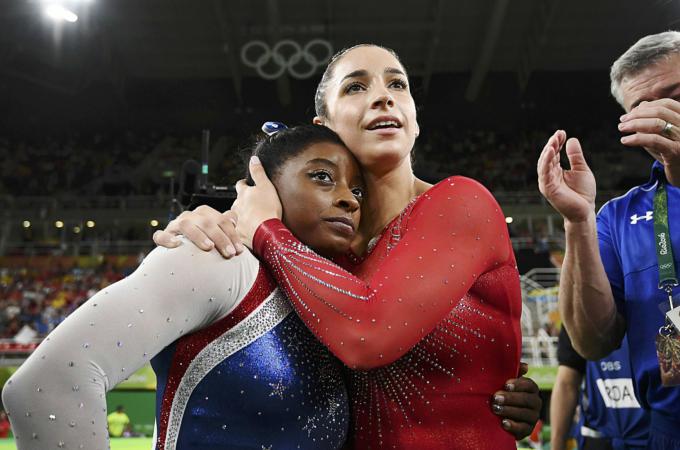Whom do we play for?
Amid all the Olympics coverage I watched, I was most taken by the women's basketball team. Their passion was mesmerizing and their tenacity in stepping up to all manner of challenges made me proud. In particular, I could not get over how repeatedly they were described as "unselfish."
Each individual player is a legend in her own right, having led her respective college and WNBA team to notable victories. Yet each played for the good of the whole, sacrificing the chance of individual glory to make sure that the team had the best chance. This made me pause.
I was also struck by the friendship and camaraderie between Simone Biles and Aly Raisman, both legitimately recognized as the uncontested top gymnasts in the world. Aly would be No. 1 in the world without Simone, and Simone could watch over her shoulder for Aly's attempts to topple her from the perch at the top.
Yet there was no jealousy, just sparkling joy for each other, two competitors who shared a room when you knew the emotions of highs and lows, of vulnerabilities and jitters, would leave little space to accommodate anyone else who was not authentically and totally devoted to and loved the other.
In societies like the United States, which place a premium on individual performance, we are constantly reminded, urged, incentivized to do our personal best: Earn the best grades, more playing time, a new record, greater prestige, etc. The brass ring is in the form of admission to elite schools and teams, scholarships, class ranks, salaries and promotions accrued to individuals, not teams. When exacerbated by the calculus of "winner takes all," "zero-sum game," and "win-loss" statistics, it is no longer achievement that matters, but winning.
In cultures that make and worship "stars," "celebrities" and "marquee players," the spotlight casts a tight circumference that has room for only one. The legitimate goals of learning and working hard can be hardened into a pressure-filled, corrosive and suffocating elevation of self.
What a marvelous example we see in the balance that enables the U.S. gymnasts to compete against each other on their individual routines or the WNBA players to battle against each other in their conference games, and then collaborate wholeheartedly to compete for each other when called to do so.
Reflecting more about this, I recall my own experiences of these dual dynamics as I had benefited from mentors and peers who worked hard for their own successes, but took me along, too. My college major professor helped me master the art and craft of publishing and thus enabled me to vie for scarce journal space. Colleagues nominated me for opportunities when they themselves would have enjoyed these.
I have seen students share interview questions with each other when one who had gone through the torture alerted others of the impending racks. That they were competing for the same job did not hold them back.
Yes, we live in a competitive world and many of us have anguished over how we will find our place amid ratings and rankings that can sideline many. Yet, how we seek our place and fulfillment, how we define success and how we honor others remains a choice that we make and a message we deliver to our children. What should the significance of trophies, press clippings, "likes" and "followers" on social media, position and pay be? How much of this is about our fear? Our pride?
And if we cannot find a place for the other, how do we get to John 3:30: "He must increase; I must decrease"?
- - -
Woo is president and CEO of Catholic Relief Services.
- Woo is distinguished president's fellow for global development at Purdue University and served as the CEO and president of Catholic Relief Services from 2012 to 2016.



















